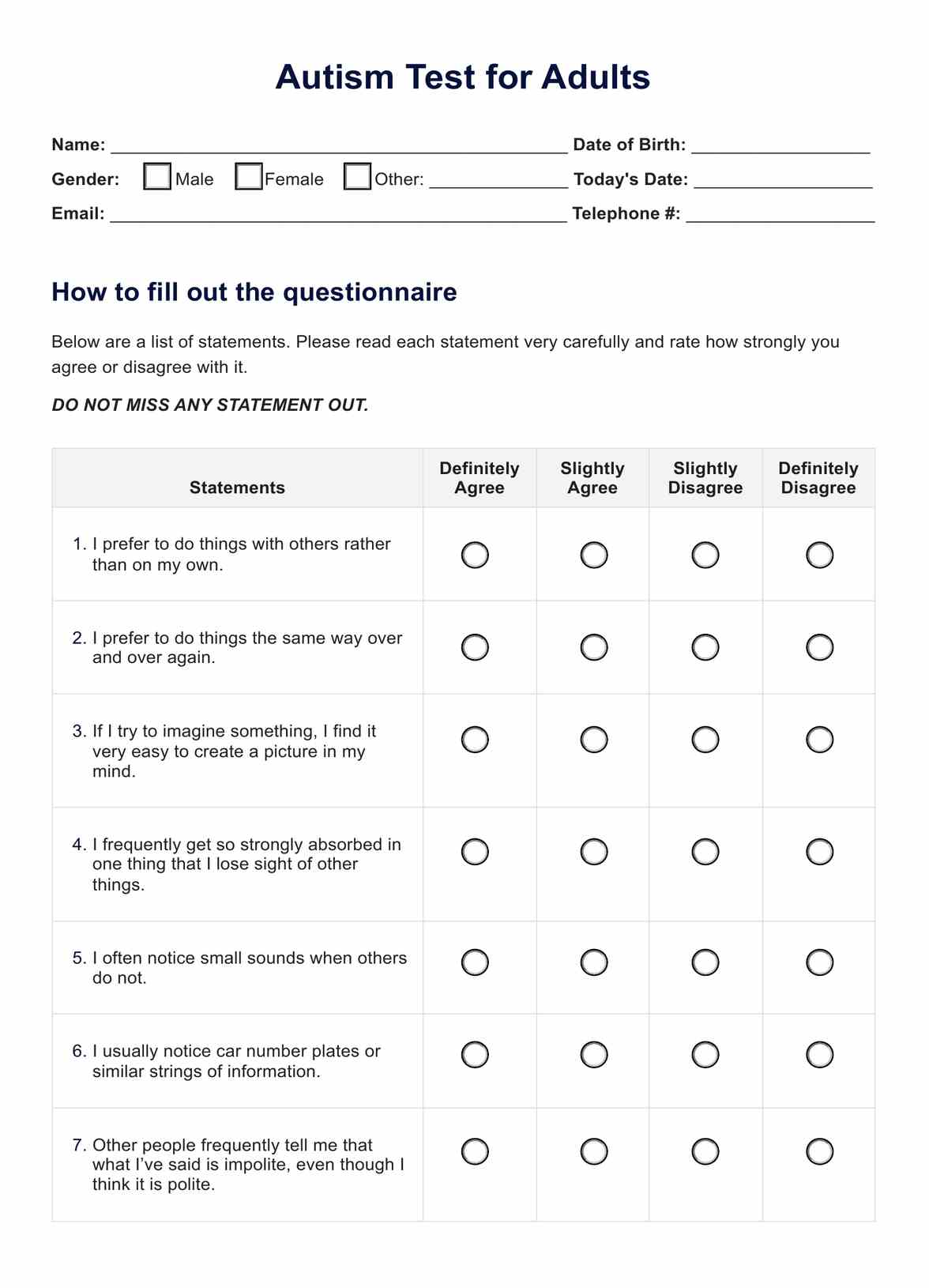Early signs of autism may include delayed speech development, limited eye contact, repetitive behaviors, and difficulty with social interactions.

Autism Test for Adults
Make accurate adult autism assessments with our comprehensive testing guide and template. Try them now!
Use Template
Autism Test for Adults Template
Commonly asked questions
Yes, there are various assessments and evaluations used to diagnose autism spectrum disorder (ASD) in adults, typically involving interviews, questionnaires, other tests, and observations.
Adult diagnosis of ASD is crucial for accessing appropriate support services, understanding oneself better, and learning strategies to cope with challenges associated with adult autism diagnosis.
EHR and practice management software
Get started for free
*No credit card required
Free
$0/usd
Unlimited clients
Telehealth
1GB of storage
Client portal text
Automated billing and online payments











